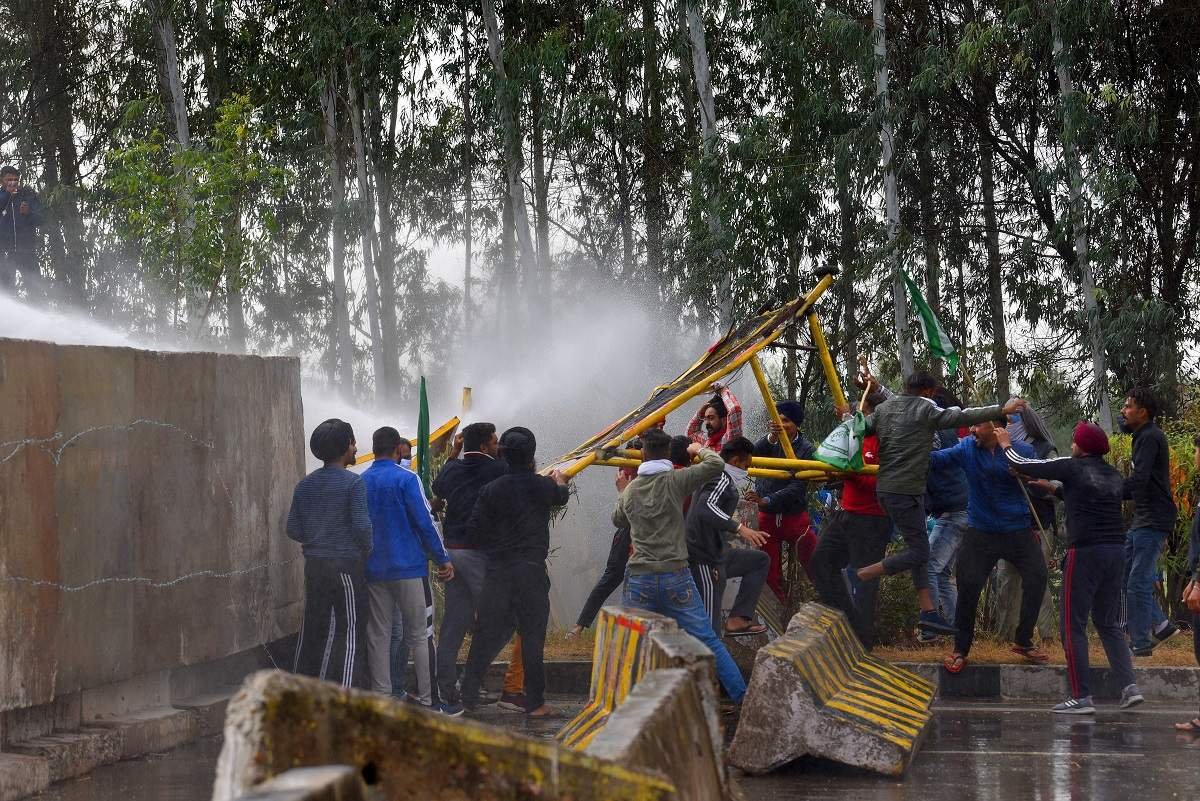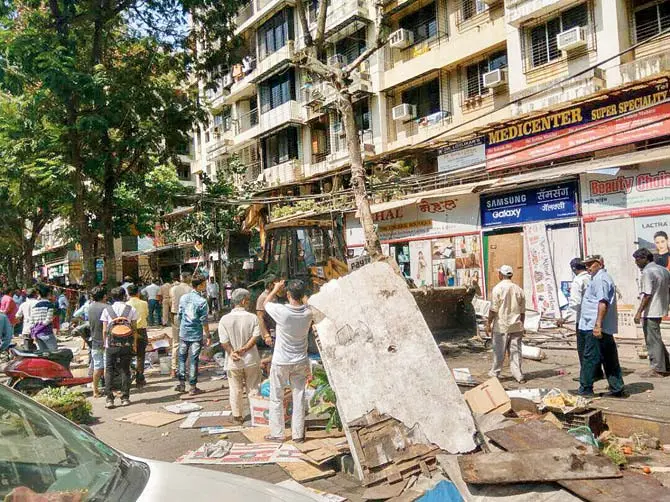Farmers across the country, along with workers and trade union organisations have been protesting against the Narendra Modi government’s anti-farmer laws. The farmers from Punjab and Haryana faced water cannon and tear gas shell attacks by the police personnel deployed to stop the farmers from reaching Delhi.
The security personnel deployment on the Singhu border saw Delhi police attempting to stop the marching farmers using barbed wires and sand-laden trucks. Metro services have also been suspended to restrict their access to commute. Over 90 leaders have been taken into custody by the police, however, none of these measures have succeeded to stop the farmers in continuing to demand for their rights.
Farmers across the country, along with workers and trade union organisations have been protesting against the Narendra Modi government’s anti-farmer laws. The farmers from Punjab and Haryana faced water cannon and tear gas shell attacks by the police personnel deployed to stop the farmers from reaching Delhi.
Also read: How Are The Recent Farmers’ Protests In India A Feminist Issue?




Image Source: PTI

The protests by farmers across the nation are primarily demanding Minimum Support Price (MSP) to be made a legal right for them. Although the Prime Minister have in his speeches vouched that he would never do away with the MSP, the three ordinances that the Parliament rushed to pass did not make it clear if the MSP could be repealed or not, leaving the farmers, who, anyway would earn less for the produce they sold, in a precarious position. Although agriculture is a state subject, the Centre’s decision has teeth.
The Modi government has, meanwhile, invited the farmers to fresh talks to “resolve differences and talk about issues”. Punjab Chief Minister Amarinder Singh demanded that the Centre immediately heeds to the farmers’ demands and assure MSP legally instead of waiting till December 3 to hold the talks.


Also read: The Impact Of Customary Laws On Women Farmers In India
Why Are The Farmers Protesting?
In September 2020, the government passed three farmer bills regarding storage, sale and pricing of the farm produce. However, there was no mention of legalising the MSP, a move that would have increased the farmers’ income.
The Farmers’ Produce Trade and Commerce (Promotion and Facilitation) Bill, 2020 stated that the farmers would be allowed to sell their produce directly to a big company, cold storage chains or even sell directly to consumers and did not have to go through the Agricultural Produce Market Committee (APMC) anymore. The Farmers (Empowerment and Protection) Agreement on Price Assurance and Farm Services Bill, 2020 allowed a farmer to enter into a contractual arrangement with a buyer to grow specific products for a pre-determined price. This arrangement would allow the farmers to determine and quote the price before cultivation. The Essential Commodities (Amendment) Bill, 2020 allows buyers to stock commodities without any penalty.
While this might look good on paper, the rushed reforms to agriculture is also reflective of how the government wants to step back from the business of procuring foodgrains, which in turn will facilitate private corporates to enter and establish themselves in the market. The entry of corporates would mean a maximising-the-profit oriented approach, which means they would not hesitate to hoard and thus not buy the produce to gain maximum profits, given how the laws do not penalise it anymore.
This is why the farmers, those who are responsible for our three meals a day, are demanding for a MSP that ensures that they are not dealt an unfair card in a market that is increasingly becoming privatised and profit-oriented.
About the author(s)
Feminism In India is an award-winning digital intersectional feminist media organisation to learn, educate and develop a feminist sensibility and unravel the F-word among the youth in India.




